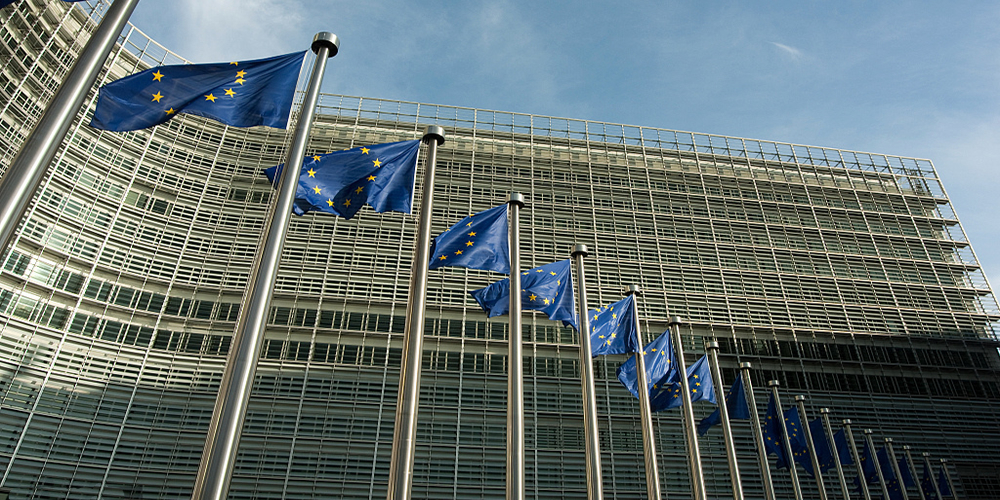April 20, 2023
FEFAC calls for targeted country partnerships, clear guidelines for EU Deforestation-Free Commodities Regulation

Following the formal approval of the European Union's Deforestation-free Commodities Regulation, the European Feed Manufacturers' Federation (FEFAC), along with COCERAL and FEDIOL, called on the European Commission and EU member states to work with stakeholders to facilitate the implementation of the regulation.
Many implementation challenges remain unaddressed and will require multistakeholder collaboration, involving the European Commission, member states and producing country government and stakeholders, FEFAC said. Furthermore, uncertainties around how the provisions translate in practice should be addressed as soon as possible to allow supply chain actors to prepare for implementation, it added.
COCERAL, FEDIOL and FEFAC have welcomed the EU initiative to tackle deforestation and supported an EU regulation introducing mandatory due diligence. As repeatedly highlighted throughout the regulatory process, some of the provisions and the set timeline for implementation will pose significant problems for numerous stakeholders in the supply chains and risk excluding many players in third countries from supplying the EU market, especially smallholder farmers, according to the organisations.
The regulation will apply to supply chain actors 18 months after entry into force, which is a short timeline considering implementation challenges that need to be tackled, FEFAC highlighted.
Practical challenges include:
- Obtaining geolocation/polygon to plot data of millions of smallholders who supply mills indirectly through collectors/aggregators: It is a common problem that middlemen do not want to share information about smallholders they buy from for fear of being bypassed. Without their collaboration, smallholders supplying through them will be excluded from EU supply chains;
- Obtaining and maintaining reliable and updated traceability data matching land ownership titles: In the absence of properly regulated land tenure and inadequate national farm registers, sourcing from farmers whose ownership rights, ownership changes and land lease contract changes are not officially registered would be a risk to operators. Operators cannot comply with the EU's requirements, which include complying with land use rights under national legislation in producing countries, if such official information is not available or in order;
- Resolving data sharing impediments in producing countries: Some producing countries consider land ownership data sensitive and prohibit their sharing.
Overcoming challenges will require all parties concerned to work together in synergy, FEFAC further noted. Without this collaboration, operators will not be able to keep certain smallholders in their supply chains to the EU and may not be able to guarantee sufficient volumes at all times.
Together with other commodity sectors, COCERAL, FEDIOL and FEFAC have been calling for guidelines to provide assurances on which practices are compliant with the regulation. The regulation's provisions have given rise to many practical questions that have not yet been addressed and which risk delaying efforts to find solutions to enable a successful implementation, FEFAC said.
"…we urge the Commission to provide legal clarity as well as solutions to avoid excessive disruptions to the functioning of commodity supply chains," the organisations said. "To that end, we urge the Commission to issue commodity-specific guidelines, as well as guidelines to facilitate the harmonised implementation of the Regulation, by the end of 2023, the latest. In addition, the Member States should also take up the responsibility of providing guidance to operators, based on their planned enforcement of the Regulation.
"We stand ready to provide our knowledge and experience operating in complex supply chains to make the implementation of the Regulation possible, while minimising as much as possible any negative impacts, including supply chain inefficiencies, exclusion of smallholders, trade disruptions, supply shortages, a likely negative impact on the cost of living in the EU and any counterproductive impacts on the fight against deforestation."
The organisations voiced support for forming working groups under the "Multistakeholder Platform on Protecting and Restoring the World's Forests" to foster exchanges on best practices and find joint solutions to the implementation challenges.
"We continue to stress the importance of tailoring these solutions to each commodity sector and country of origin for any guidelines to be useful and practicable," the organisations said.
- FEFAC










